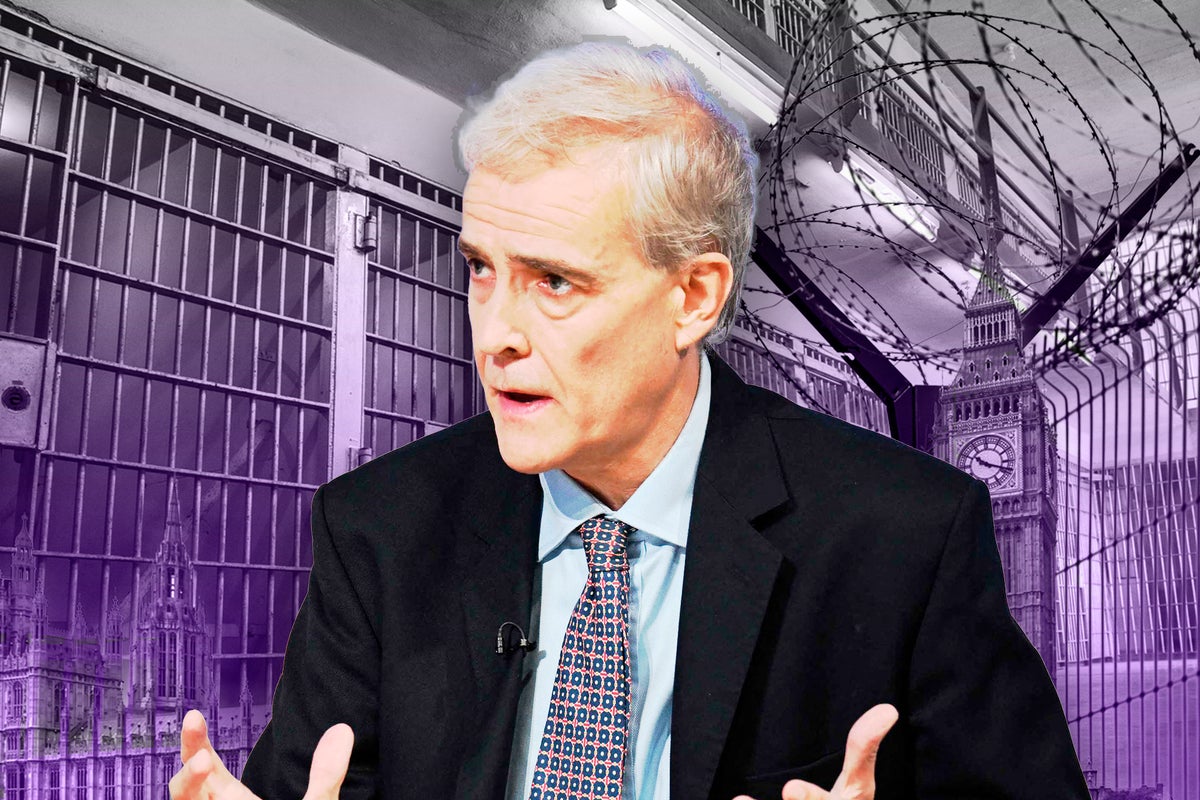
Your support helps us to tell the story
“Brutalising” conditions in prisons are fundamentally undermining any efforts to reduce inmates’ risk of reoffending and creating more victims of crime, HM chief inspector Charlie Taylor has warned.
In an annual report which one ex-governor said was unlike any he had seen in decades in its warnings of devastation behind bars, Mr Taylor said he had been alarmed to witness the growing consequences of ever-increasing pressure on prisoners and staff as a result of the current crisis.
With 11 of the 39 jails inspected in the past year judged to be failing on safety, Mr Taylor warned that prisons are currently a lucrative market for organised crime gangs, with the ingress of drugs – either over the wall or through the gate – now a common cause of violence, bullying and debt.
In an “appalling” situation, just two out of 30 closed prisons were succeeding in offering inmates purposeful activity, Mr Taylor said, leaving people simply “warehoused in squalor”, surrounded by drugs and violence with their mental health needs unmet.
Speaking as some 1,700 inmates are freed early on Tuesday to stop prisons becoming competely full, the chief inspector warned it was inevitable that some would reoffend, and said the breathing space bought by the scheme was not a “solution to decades of underinvestment and inertia in a vital public protection service”.
Blaming a trend of longer sentences dating back to the 1990s and record numbers of remand prisoners due to the soaring courts backlog, Mr Taylor said the prison population is now projected to grow by as much as 27,000 – an increase of 30 per cent – by 2028.
Warning against the idea that ministers can build their way out of the crisis, Mr Taylor echoed his call to The Independent in December that “there is a pressing need for a much bigger conversation about who we are sending to prison, for how long and what we want prisoners to do while they are inside”.
He said: “Prisons must be equipped to deliver the work for which they were designed: to reduce the risk of further offences being committed and more victims of crime created.
“In their present state, the brutalising conditions faced by all those living and working within their walls fundamentally undermines any effort to achieve this. If we use them simply to warehouse people in squalor, surrounded by drugs and violence and failing to address their unmet mental health needs, what can we really expect when they are released?
“We need sustained, decisive action to make life safer not only within prison walls, but also for our communities when people are released.”
Mr Taylor warned that overcrowding, staff shortages and levels of violence were at the heart of the three urgent notifications issued to adult prisons – Woodhill, Bristol and Bedford – in the past year, with violence “one of the most pressing concerns” that inspectors raised in 14 of the 39 prisons inspected.
Around a third of prisoners told inspectors it was easy to get illicit drugs, which was fuelling violence and deaths. Some 55 per cent of prisoners at HMP Hindley tested positive in mandatory drug testing, while 21 per cent of men said they had developed a problem with drugs since arriving at HMP Lindholme.
In around a third of the men’s prisons inspected, self-harm had increased significantly, and in some cases had doubled, while inspectors found that fewer than 15 per cent of acutely mentally unwell patients were being transferred to secure hospitals within 28 days, “highlighting unacceptable suffering and irreversible harm to both prisoners and the prison staff caring for them in the meantime”.
Despite large sums of money being spent on building new jails or cells in existing prisons, inspectors “consistently found problems with prison infrastructure and an estate that was becoming increasingly dilapidated”, with infestations of rats, cockroaches, flies and pigeons reported.
And there were “worrying concerns about shortfalls in preparing people for release, with staff shortages undermining public protection work and too many men and women continuing to be released homeless, inevitably leading to the swift recall to prison for many”.
Speaking to Sky News, former governor Ian Acheson said: “I’ve been in this game for a couple of decades ... I have never seen an annual report like this with references to devastation by the chief inspector.
“There are far too few [prison officers] looking after people with very high needs that are potentially very violent in environments that are awash with drugs, brutality and distress,” said Mr Acheson, adding: “Prisons are fundamentally unsafe at the moment, people don’t want to work there.”
Justice secretary Shabana Mahmood said the report “lays bare the stark reality in our prisons, and the dire situation we inherited”, adding: “This government will tackle the crisis head on and today, changes will come into force to prevent a total collapse of our criminal justice system that would leave the public less safe.
“If we had not acted when we came into office, there was a real risk that the courts would have been forced to delay sending offenders to jail and police left unable to arrest dangerous criminals.”







